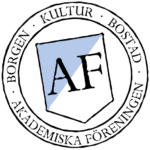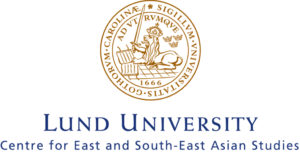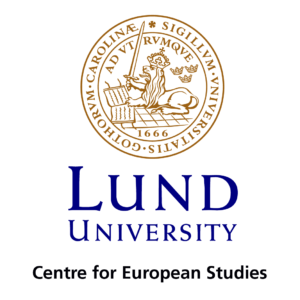On this page you can find out more about UPFs long-standing collaboration partners: AF, ACE, CFE, CMES and RWI. Each semester UPF arranges public events together with its partners to broaden knowledge and encourage discussion on human rights issues, East and South-East Asia, the Middle East, and Europe.
The Academic Society
The Academic Society (AF) is an non-profit student organisation, for and by students with a purpose of gathering and broadening the cultural aspect of student life at Lund University. By providing supporting functions and premises enables AF for their own committees, the connected organisations and students to go through with initiatives no matter the size that enrich Lunds student life and makes Lund an attractive place to study.
For more information, visit their Website.
Centre for East and South-East Asian Studies, Lund University
The Centre for East and South-East Asian Studies (ACE) (Centrum för öst- och sydöstasienstudier) was established in 1997 as the result of a special government initiative. The Centre moved to a new building in early 2017, and its new premises make it an attractive meeting-place for scholars and students working on the region. It plays an important role in promoting international perspectives in education and research at Lund University.
The Centre has an active group of researchers working on contemporary East and South-East Asia. The Centre also has a large network of scholars and institutions in Asia and globally, hosts visiting scholars, and regularly organises open lectures and other events. The Centre offers a unique interdisciplinary programme in Asian Studies that aims to provide students with advanced knowledge on contemporary issues in Asia together with the analytical and methodological skills to assess social, economic and political developments in the region. Most of our students carry out fieldwork in an Asian country of their choice and have the option of taking our applied fieldwork course at one of our partner universities in Asia.
This Master’s programme is unique in Europe, and provides an excellent foundation for postgraduate studies, teaching and research, as well as for work in government agencies, international services, private firms and NGOs. The Asia library, the foremost library of its kind in Sweden, was created in 1999 and has a national responsibility to provide contemporary documentation about East and South-East Asia. The collection is interdisciplinary and focuses on subjects in social sciences, economics, politics, contemporary history, media and anthropology. The library has a wide selection of databases, e-books and e-journals.
For more information, visit their Website.
Centre for European Studies, Lund University
Centre for European Studies (CFE) at Lund University was founded in 1997 and is a network organisation for co-operation between faculties, departments and researchers, primarily within the faculties of the social sciences, humanities, economics and law.
Their aim is to encourage research, education, and long-term competence on Europe within the university, but also to develop the external contacts of the university, both nationally and internationally. Accordingly, the Centre has a vital role to play for Lund University’s European profile. The centre connects around two hundred scholars that have declared an interest in the field of European Studies.
For more information, visit their Website.
Centre for Advanced Middle Eastern Studies, Lund University
Centre for Advanced Middle Eastern Studies (CMES) was founded in 2007 to support, coordinate and expand research at Lund University (LU) on the Middle East. CMES is home to the strategic research area “The Middle East in the Contemporary World” or MECW, through funding from the Swedish Research Council. The goal at CMES is to produce research and education at the highest international level.
Since the fall of 2010 they have provided an MA program in Middle Eastern Studies (120.0 credits). What is truly unique about education at CMES is its pursuit of an atmosphere and structure that focuses on mentorship, openness and personal development. They strive to take a more comprehensive and multidisciplinary approach to education and research on the region. Students are considered an important part of their environment and are given several opportunities to work closely with scholars in different research projects. Their courses are also available as freestanding courses to other students in the university, allowing them to learn more about the contemporary Middle East. Each semester they host public events, including talks, lectures, and seminars, providing a platform for discussion of the issues affecting the contemporary Middle East. They invite renowned scholars from around the world to discuss their research, as well as encourage their own researchers to present their work.
For more information, visit their Website.

The Raoul Wallenberg Institute of Human Rights and Humanitarian Law
The Raoul Wallenberg Institute of Human Rights and Humanitarian Law (RWI) combines evidence-based human rights research with direct engagement in close collaboration with their partners to bring about human rights change for all. RWI is a research and academic institution with offices, programmes, and convening power covering 40 countries. The institute is named after Raoul Wallenberg, the Swedish diplomat who saved tens of thousands of Jews and other people at risk in Hungary at the end of World War II.
The Institute’s mission is to contribute to a wider understanding, and respect for, human rights and international law, with a vision of just and inclusive societies with the effective realization of human rights for all. RWI apples a cross-cutting approach to gender equality so that the gender equality perspective is integrated in all of its work. It achieves this through targeted activities, such as training courses focusing on gender equality, and through integrating gender equality considerations into all of its work even when the primary objective is something else.
They have four focus areas: Fair and Efficient Justice, Inclusive Societies, Economic Globalization and Human Rights and People on the Move.
For more information, please visit their Website.



